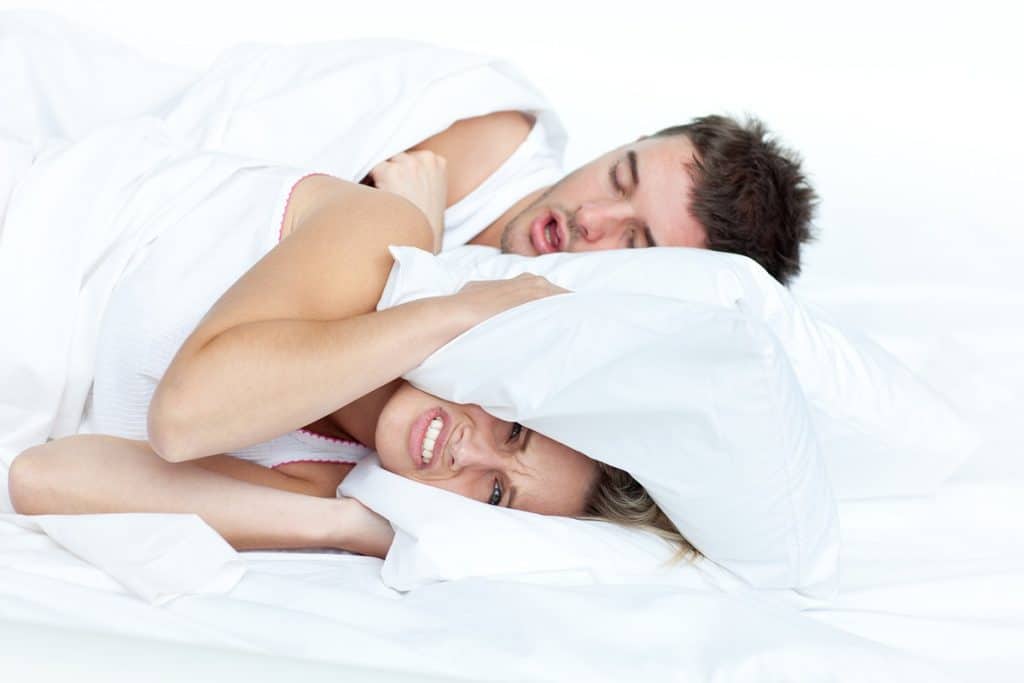What Is Sleep Apnea?

Sleep apnea is a sleep disorder that causes people to stop breathing for short periods during sleep. It’s more common in men than women and can affect people of any age.
What causes sleep apnea?
The main cause of sleep apnea is the relaxation of muscles in your upper airway. When you’re awake, muscles in your throat help you breathe by opening up your airway when you inhale and closing it when you exhale. But during sleep, these muscles relax, which can block your airway and cause you to stop breathing briefly. This can happen hundreds or even thousands of times in one night, leading to fragmented sleep.
Sleep apnea may be caused by:
- Narrowing of the airway due to excessive tissue buildup (fatty tissue).
- Narrowing of the airway due to underdeveloped jaws
- Crowded Teeth
- Mouth Breathing and improper tongue position
- Enlarged tonsils or adenoids.
- Genetic factors.
What are the symptoms of sleep apnea?
Sleep apnea is more than just snoring—it’s a serious condition that can affect your health, quality of life, and safety.
If you have sleep apnea, you may experience:
- Loud snoring or choking sounds during sleep.
- Restless sleep.
- Waking with a dry mouth or sore throat.
- Morning headache and fatigue.
- Daytime sleepiness and memory problems.
- Difficulty concentrating.
- Chronic irritability or depression.
- Irritability or moodiness.
How common is sleep apnea?
Sleep apnea affects about one in every fifteen adults. But it’s not just a problem for adults; it can also occur in children.
In general, men are more likely than women to have sleep apnea—about four times more likely—but women tend to have more severe cases and experience more daytime symptoms than men. The condition occurs most frequently in overweight men over age 50.
What are the potential dangers of sleep apnea?
Sleep apnea can cause significant health problems if not treated.
The most common sign of sleep apnea is fatigue. People with the condition are often sleepy during the day, affecting their ability to function effectively. Sleep apnea decreases the level of oxygen in the blood and therefore affects all organs in the body increasing the risk of high blood pressure, heart disease, stroke, and depression.
People with severe untreated sleep apnea may experience memory loss, hallucinations, or delusions, which can lead them to do things that are dangerous or even life-threatening.
Am I at risk for sleep apnea?
The risk factors for sleep apnea include:
Jaw underdevelopment. People with narrow jaws have an increased chance of developing sleep apnea. When your jaws are underdeveloped then your airway will be underdeveloped and small. To make things worse, there is now less room for your tongue in your mouth so it ends up falling backwards and collapsing the narrow airway even more. People that have had premolar extractions during previous orthodontic treatment are at an even higher elevated risk for sleep apnea due to the extremely narrow and underdeveloped jaws.
Tongue Tie. When the tongue is tied it is unable to come forward and out of the airway and is more likely to fall back into the airway and collapse it.
Mouth Breathing. When mouth breathing the lower jaw falls back and the soft tissues go with it to block the airway.
Gender. Men are twice as likely as women to have obstructive sleep apnea, the most common form of sleep apnea, which occurs when the tongue falls back into the throat, blocking the airway during sleep.
Age. As people age, their muscles relax more easily, and they tend to snore more often and loudly.
Weight. People who are overweight or obese are at an increased risk for sleep apnea. Excess weight causes tissue and fat to collect in the back of the throat, which can narrow the airway.
Sinus problems. Having chronic nasal congestion from allergies or a deviated septum can increase the risk of developing sleep apnea.
Family history. If someone in your family has sleep apnea, you’re also more likely to develop it.
Smoking. Smoking makes breathing more difficult during sleep due to decreased oxygen in your blood. It also irritates the throat and tongue, which can lead to swelling—making breathing more difficult.
Dental Partners of Vero Beach Treats Sleep Apnea
If you think you may have sleep apnea, we can help. To schedule an appointment, call us today at (772) 569-4118.
The post What Is Sleep Apnea? appeared first on Dental Partners of Vero Beach.
